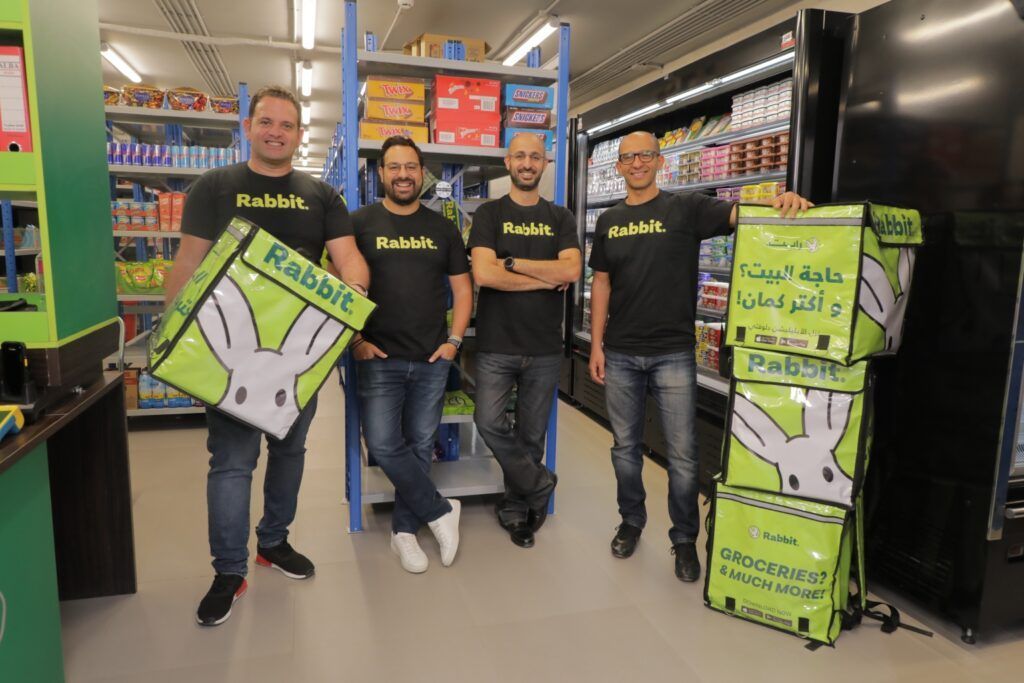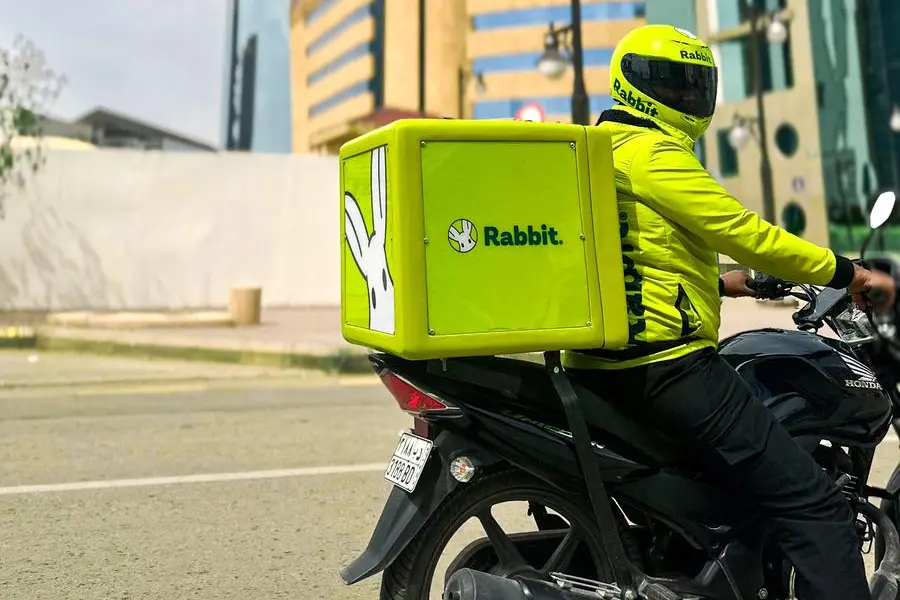In a bold and strategic move, Rabbit, the fast-growing hyperlocal e-commerce platform based in Cairo, Egypt, has officially entered the Saudi Arabian market. With a plan to invest more than $60 million over the next two years, Rabbit aims to redefine the way people in Saudi Arabia shop for groceries, daily essentials, and other fast-moving goods.
This expansion marks a significant milestone in Rabbit’s journey, as it grows from a local disruptor in Egypt into a regional e-commerce powerhouse in the Middle East. The company’s entry into Saudi Arabia is not just another international expansion—it’s a sign of confidence in the Kingdom’s booming e-commerce sector and its rapidly evolving digital economy.
A Revolutionary Approach to Online Shopping
Rabbit was launched in late 2021 with a bold promise: delivery in 20 minutes or less. That claim quickly set the startup apart in the growing quick-commerce industry. With the use of small, hyperlocal fulfillment centers, known as “dark stores,” Rabbit manages real-time inventory, quick order processing, and rapid last-mile delivery. The company’s model is designed to eliminate the common e-commerce wait time of several hours—or even days.

In a world where convenience is king, Rabbit found its footing quickly. In its first year of operations, Rabbit successfully completed tens of thousands of deliveries, maintained a delivery accuracy rate of more than 94%, and won the trust of urban consumers with its dependable 20-minute service. The app saw over 350,000 downloads in Egypt in just the first few months of launch.
The brand’s growth has been fueled by a simple but powerful insight: consumers don’t just want convenience—they want speed, reliability, and a user-friendly experience. Rabbit delivers on all three fronts.
Saudi Arabia: The Next Big Market
Rabbit’s move into Saudi Arabia is more than a business decision—it’s a strategic bet on one of the most promising digital markets in the Middle East. The Kingdom has been aggressively modernizing its economy as part of Vision 2030, a government-backed plan to reduce reliance on oil and boost non-oil sectors like technology, logistics, and e-commerce.
The Saudi e-commerce market is growing rapidly, with increased smartphone penetration, internet connectivity, and digital payment adoption. More than 70% of the population is under the age of 35, and consumer expectations are shifting toward digital convenience. People want to shop from their phones and receive their products almost instantly.
That’s exactly where Rabbit fits in.
$60 Million Investment and Job Creation
Rabbit’s entry into Saudi Arabia is backed by a commitment to invest over $60 million in local infrastructure. The investment will be used to establish local fulfillment centers, hire talent, train delivery staff, and build a sustainable supply chain tailored to the Saudi market.
The company is planning to create more than 700 jobs across different cities in the Kingdom. From operations and logistics to marketing and tech, Rabbit is looking to build a strong local team that understands the needs of Saudi consumers.
The initial phase of the rollout will begin in Riyadh, the Kingdom’s capital and largest city, with plans to expand to Jeddah, Dammam, and other urban hubs in the coming months. The goal is to become the go-to platform for everyday shopping in Saudi Arabia—delivered in just 20 minutes.
A Green Light From the Government
Rabbit received its operating license from Saudi Arabia’s Ministry of Investment in 2022, during the Global Entrepreneurship Congress in Riyadh. The government’s support highlights how Saudi Arabia is becoming increasingly attractive for startups and investors from across the world.
The licensing is part of the Kingdom’s broader efforts to make it easier for foreign startups to enter the market, access funding, and scale rapidly. Rabbit’s CEO, Ahmad Yousry, praised the Kingdom’s startup-friendly environment, calling it “one of the most progressive ecosystems globally.”
Yousry added, “Saudi Arabia is where the future is being built. The infrastructure, the talent, the policies—all of it signals opportunity. We are excited to bring Rabbit to the Kingdom and to serve customers with the same promise of speed and quality that made us successful in Egypt.”
Hyperlocal Model Designed for the Saudi Lifestyle
Rabbit’s business model is designed around the concept of hyperlocal delivery. Unlike traditional e-commerce platforms that ship products from central warehouses, Rabbit uses a network of small fulfillment centers located within neighborhoods. This allows them to deliver products faster and more efficiently.
In Saudi Arabia, where many families live in sprawling suburban neighborhoods and rely heavily on delivery services, this model is especially well-suited. It bridges the gap between local stores and the fast-paced digital lifestyle that younger Saudis are embracing.
Rabbit is also planning to partner with local suppliers and retailers to stock their fulfillment centers with in-demand products that reflect local tastes and preferences. By doing so, the company aims to support local businesses while offering a curated, fast, and tech-driven shopping experience.
Competition and Differentiation
The Saudi market already hosts several e-commerce players, from large platforms like Noon and Amazon to local delivery apps focused on groceries and essentials. However, Rabbit believes its speed-first model and customer-centric technology will set it apart.
Unlike other platforms that take an hour or more for delivery, Rabbit’s 20-minute promise aims to solve the “I need it now” problem that many consumers face.
What also makes Rabbit stand out is its focus on user experience. From app design and payment options to order tracking and customer service, Rabbit is investing heavily in building a seamless digital journey.
Looking Ahead: A Middle East E-Commerce Giant in the Making?
Rabbit’s expansion into Saudi Arabia is only the beginning. The company has hinted at further regional growth in the Gulf Cooperation Council (GCC) countries, including the United Arab Emirates, Kuwait, and Bahrain. The long-term goal is to become the Middle East’s leading hyperlocal e-commerce brand.
The company also plans to introduce new categories beyond groceries and daily essentials, including beauty products, electronics, and household items—all delivered at record speed.
As Rabbit scales, it is also investing in AI and data analytics to optimize its logistics and personalize the shopping experience for users. With these innovations, Rabbit isn’t just entering the market—it’s aiming to redefine it.
Final Thoughts
Rabbit’s entry into Saudi Arabia marks a major step forward for both the company and the regional e-commerce sector. By combining cutting-edge technology, lightning-fast logistics, and a deep understanding of urban consumer behavior, Rabbit is poised to become a household name in the Kingdom.
With a $60 million investment, hundreds of jobs, and a unique hyperlocal model, the company is betting big on the future of shopping in Saudi Arabia. If the past is any indicator, Rabbit’s 20-minute delivery promise may soon become the new standard for convenience across the Middle East.
Taylor Ward Feels Safer in Saudi Arabia Than in England: “I Can Sleep at Night Now”



